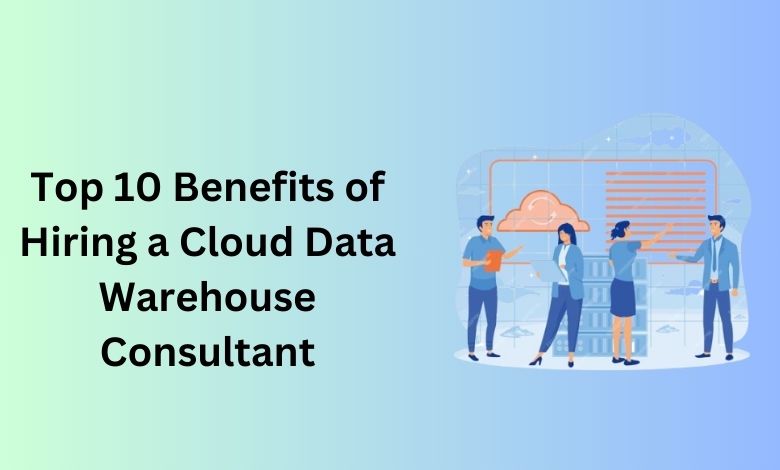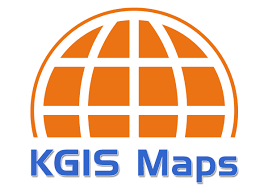Top 10 Benefits of Hiring a Cloud Data Warehouse Consultant

Data warehouse remains one of the critical technologies of many organizations’ data architectures and IT for over three decades. Consequently, there is still confusion about its definition and use of data warehousing up to the present day. With the emergence of big data and other structural and analytical tools, various organizations today wonder whether the data warehouse is still relevant.
The answer to the question posed in the initial statement will have to be a resounding yes. Currently, many companies in different industries still use data warehousing services to deliver Business Intelligence that department heads and executives can depend on when making decisions.
What is a Data Warehouse?
A data warehouse can thus be described as a centralized repository developed especially for the systematic storage of information, including current and past occurrences. This, in turn, helps the teams make informed decisions. The concept of enterprise data warehouses provides substantial benefits and serves as efficient instruments in business development. Due to the factors mentioned above, data warehousing cannot be overemphasized since the company deals with a vast relational database.
The actual information contained in the enterprise data warehouses reflects the chronology of events, which contributes to sound decision-making through proper data analysis. Users can easily and quickly access aggregated information, highlighting the significance of data warehouses.
Data warehouses provide an overview of various transactions, typically categorizing stored data by subject. A key benefit is distinguishing between customer and product information, simplifying information retrieval and precise analysis.
What Do Data Warehouse Consultants Do?
Data warehouse consultants offer a range of services. Some specialize as data architects, designing the structure of your data warehouse but not necessarily implementing it. This approach can work well for large companies or extensive projects with separate implementation consultants.
However, in most cases, you’ll need a data warehouse consultant to implement the entire solution from start to finish. End-to-end data consultants ensure data is processed from raw sources to dashboards and machine learning models. They create ETL/ELT processes, often called data pipelines, and sometimes even develop data visualizations and reports.
To provide comprehensive services, data consultants typically conduct a data strategy questionnaire. This helps them understand your company’s business and technical needs, ensuring they deliver a solution tailored to your requirements.
The main advantages of opting for a Cloud Data Warehouse Consultant
1. Unlock Data-Driven Capabilities
More and more often in today’s business world, using instincts or, at best, probabilistic estimates in decision-making results in either loss of opportunities or costly missteps. Data warehouses assist leaders in making proper decisions through recent and accurate data availability. Unified information and the absence of data ‘lock’ in some departments is achieved through the help of a data warehouse. This centralization also helps to keep the focus on one place where various stakeholders of the organization do not need to consult another department to get the data they require. Thus, it enables decision-makers to rely on this data in formulating the strategies and actions that will address the future of the organization.
2. Maintain Data Quality and Consistency
More specifically, data quality and concurrency should be maintained in order to make adequate decisions. Inaccurate data defined by errors, duplicates, and inconsistency is likely to destabilize most conclusions and recommendations performed. Striking cleaning and standardization processes are settled in a data warehouse, making the data accurate and uniform. For instance, it can filter out duplicate entries, modify the format of data, and alter the old data to match the current one. This helps to guarantee that the information within the warehouse is credible, timely, and set for analysis. Accuracy assists different organizational activities, such as calling center employees for the latest contact information of clients or directors and making crucial business decisions.
3. Use Data From Numerous Sources
Several departments in an organization collect various data from different sources and in multiple formats. For example, the customer service department may collect information on customer inquiries, whereas the marketing department collects information on campaign outcomes. An appliance is a consolidation of these diverse sources in which a data warehouse facilitates the arrangement in a more analyzable manner. A data warehouse collects data from all organizational areas, and it eliminates duplication and contradiction and falls in accurate decision-making in an organization. Top managers can arrive at fuller decisions, avoiding situations when information is collected department by department so that some factors affecting a decision can be overlooked.
4. Understand the Power of Automation
Robotics is gradually being considered as one of the essential elements contributing to corporate organizations’ success. Analyzing and data warehousing enhances the possibility of implementing automation since it offers sound fundamentals to data management. It allows organizations to help by automating data access, transfer, and analysis functions. For instance, integrating solutions assists in collecting and moving data for audits or investor reports, which saves resources and time. It is faster in identifying data patterns and can come up with insights much faster, hence, decisions. Also, it helps to avoid the appearance of new mistakes, having built-in protection with robotic error detection and logging that increase operational effectiveness.
5. Respond to Business Growth
Business development is generally a broad term referring to the process of entering new areas, providing new goods and services, and reaching out to additional customers. Only when proper information is gathered in a data warehouse can growth be managed and controlled. It facilitates identifying the success drivers, including the right products to market or strategies to market the products. Decision-makers in business organizations can use this information to make decisions, including the choice of areas for expansion, for instance, use for opening new stores or centers of distribution. A data warehouse also aids in the planning of human resources through intuition when the company needs to recruit more employees to meet the increased demand. The infinitely complex manner of viewing growth helps prepare organizational systems and guarantees permanency and stability.
6. Get Data Warehousing on a Subscription Model
Conventional data warehousing applications may involve enormous initial costs towards acquiring IT and software and hiring highly trained people. This can be a hurdle for many organizations, particularly small to medium enterprises. The data warehousing as a service DWaaS model is much more flexible and can prove less expensive. In DWaaS, it becomes possible for organizations to access the services of data warehouses in terms of price, where they are charged a fixed price depending on their requirements in the services without having to spend a lot of capital. This subscription-based model offers unlimited data warehousing features related to data storage, data processing, and data analysis with added features of flexibility and simplicity. Businesses can concentrate on using data for business purposes without complications concerning implementing and managing the underlying frameworks.
7. Customer Knowledge:
This paper found that one of the critical aspects of understanding customers is their behavior and preferences, which are required to shape brand loyalty. Customer data is essential to a business; data warehouses help accumulate and process information. For instance, information from the firm’s sales records, customer interactions on the firm’s website, and complaints can be combined and examined for patterns. Recommendations, as Netflix uses to recommend movies to clients, are a great way to indirectly improve customer satisfaction levels. Thus, utilizing a data warehouse, an organization is able to create relevant marketing operations, enhance its service delivery, and design client-oriented products to realize improved revenues and customer retention.
8. Experience Interoperability Between Physical Solutions and the Cloud
Since cloud computing is widely used in companies’ operations, the possibility of combining physical and cloud-based data solutions is crucial. Different data warehouses support both on-premises and cloud in such a way that organizations can move to cloud solutions as per their suitability. Since data warehousing is stored in the cloud, one advantage of adopting it is ensuring that work and operations can be done remotely and across multiple locations. For instance, the traveling sales representatives can obtain up-to-date sales figures, while executives can observe the outcomes in various regions. This integration also guarantees the availability of these data and their security, irrespective of the location of those data and the method through which they are used.
9. Preserve the Security of Your Data
Technology and data security is a significant factor of concern for organizations, particularly those that work with sensitive data. Data security is easily improved by consolidating big data and applying strict security procedures within the data warehouse. When data is collected and stored in one place, it becomes very easy to handle and secure. Several security solutions, such as encryption, access control, threat detection, and others, are frequently incorporated into a data warehousing platform. Moreover, organizations can set the rights of employees depending on the roles of these individuals, and thus, they can only show the information that the employee needs to work. Moreover, the built-in security features can block unwanted access and enhance protection against cyber risks for the organization’s valuable data capital.
10. Read Historical Summaries of Business Operations
While current data gives a relative picture of a certain period of time of the two compared entities, historical data shows changes over time. A data warehouse can let the organization have historical data, which shows a comprehensive picture of the business activities. Historical insights can be used effectively to determine where to play, how to win, and forecast the company’s future in the external environment. For instance, by studying previous sales records, one will notice specific trends linked with certain seasons so that adequate preparations can be made. Another advantage is that historical data proves helpful in evaluating performance since by comparing the current performance to that which occurred in the previous period, leaders can consider such aspects and make sound decisions. Therefore, history-containing resources add to the organization’s capability for proactively projecting events and adapting to new scenarios.
Conclusion
Data warehouses can be very beneficial, particularly as more business executives rely on precise information to make decisions and stay ahead of the competition. However, they also necessitate large, continuous investments.
Analyzing data warehousing benefits requires comparing them to the organization’s primary objectives. Furthermore, it is imperative to guarantee that personnel from various departments inside the company will utilize the data warehouse frequently enough to warrant its establishment and upkeep.
For more valuable information visit our website.






